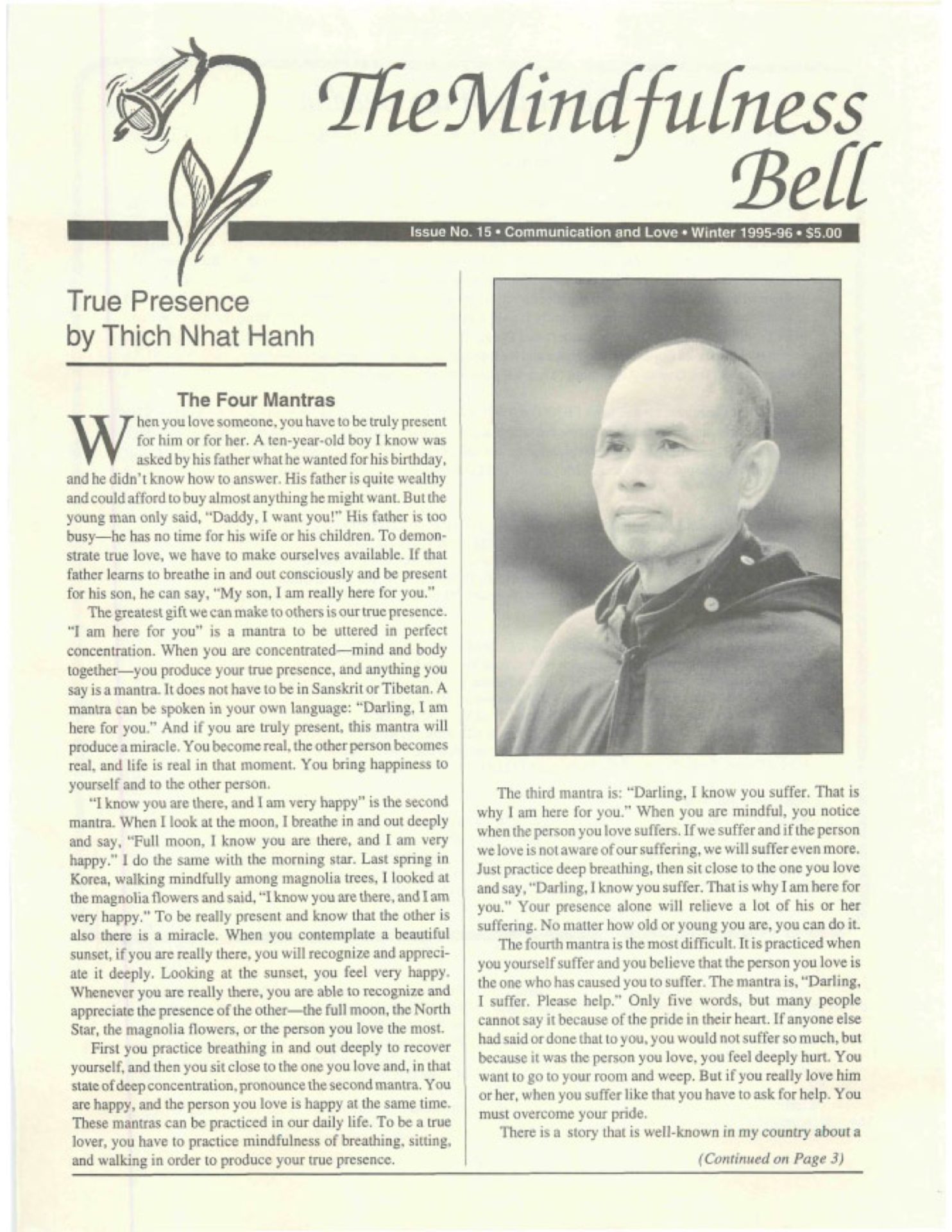I am more than Vietnamese. I am also a citizen of the world. We must be aware of the “interbeing” of all countries’ happiness. Happiness is not an individual matter. The happiness of the United States is crucial for the happiness of others in the world. The happiness of the Vietnamese people is also the happiness of the American people. Human relations are very important. Economic growth is not the only way to be happy. Economic growth can cause the destruction of human values.
I am more than Vietnamese. I am also a citizen of the world. We must be aware of the "interbeing" of all countries' happiness. Happiness is not an individual matter. The happiness of the United States is crucial for the happiness of others in the world. The happiness of the Vietnamese people is also the happiness of the American people. Human relations are very important. Economic growth is not the only way to be happy. Economic growth can cause the destruction of human values. If you think that investments in markets are more important, the Vietnamese people will not listen when you admonish them about human rights. I am also concerned about the ecosystem in Vietnam. International laws are necessary if we are to prevent Vietnam from being destroyed by greed and by the exploitation of human labor.
In 1968, I met with Secretary of Defense Robert McNamara and spoke with him of our mutual destruction. I came as a friend and offered suggestions for lessening the suffering of the Vietnamese and the Americans. I come today not as a diplomat or a politician, or as a Buddhist alone. I come to encourage you to take the broadest possible view of international and all human affairs, so that a future will be possible for all of us.
Question: What in practical terms would advance communication that could contribute towards the release of political prisoners in Vietnam?
There are many avenues. Kwan Yin sometimes appears as a politician, sometimes as a beautiful woman, sometimes as a member of the State Department. Understanding between religions, ethnic groups, or any two parties is necessary to promote real understanding. Perhaps Western Buddhists could visit Buddhists in Vietnam. When we write protest letters, we should write them as "love letters." The State Department is made of non-State Department elements. Please speak to the Vietnamese officials, not as one government speaking to another, but as human being to human being. We have to speak to the Vietnam Buddhist Church about the nonthreatening aspects of the Unified Buddhist Church.
Question: Should human rights and democracy be conditions tied to economic relations?
We need a long-term commitment for the happiness of the U.S. and Vietnam. We have to ask the participation of nongovernmental organizations—humanitarian and cultural—not only for the success of diplomacy, but for the happiness of the American and the Vietnamese people.
Question: So the message is to proceed with sincerity, not as if human rights is a checklist from which to move on quickly to trade. We appreciate this kind of exchange of ideas to work together. Mutual happiness rather than national interest.
We wish you peace and happiness in your hearts so that many people can benefit.
Notes taken by Therese Fitzgerald from a "Dharma talk" given by Thich Nhat Hanh to a group of State Department officials in Washington, D. C. in October

